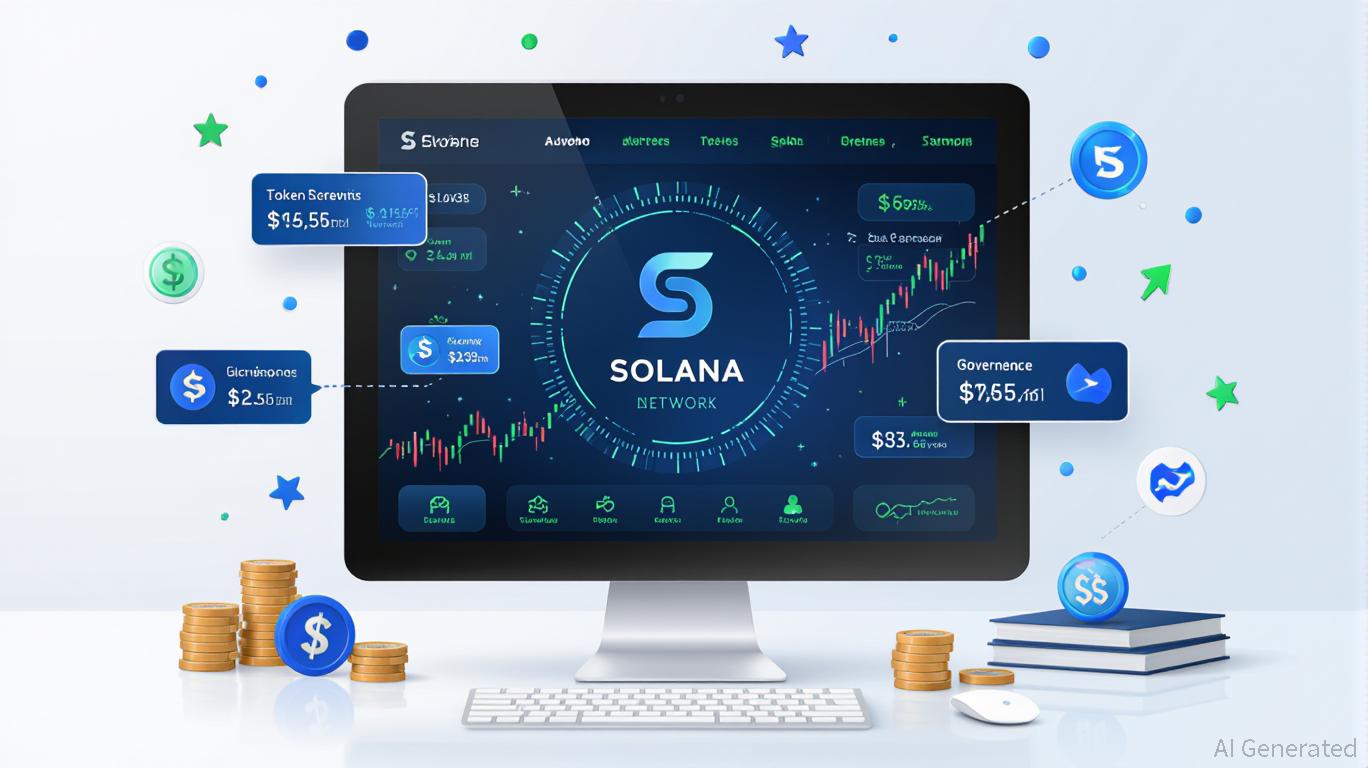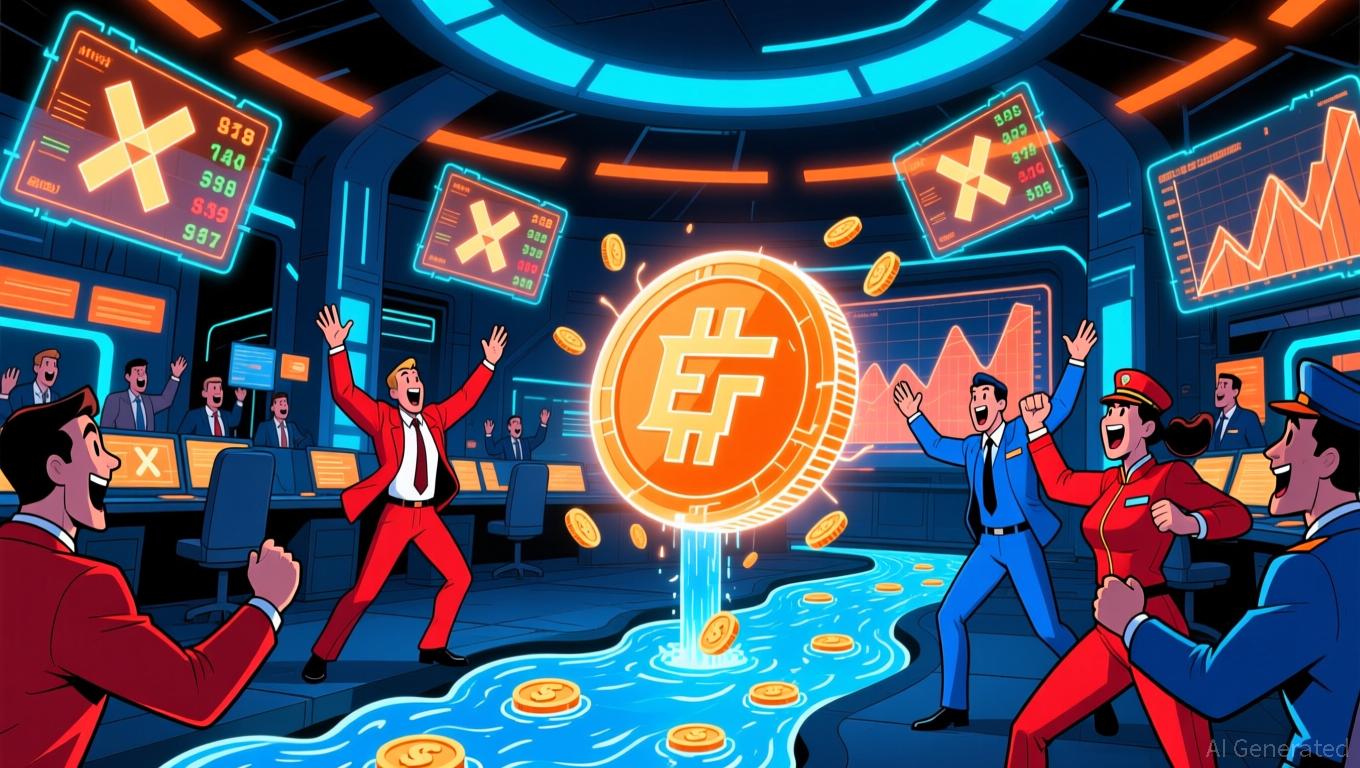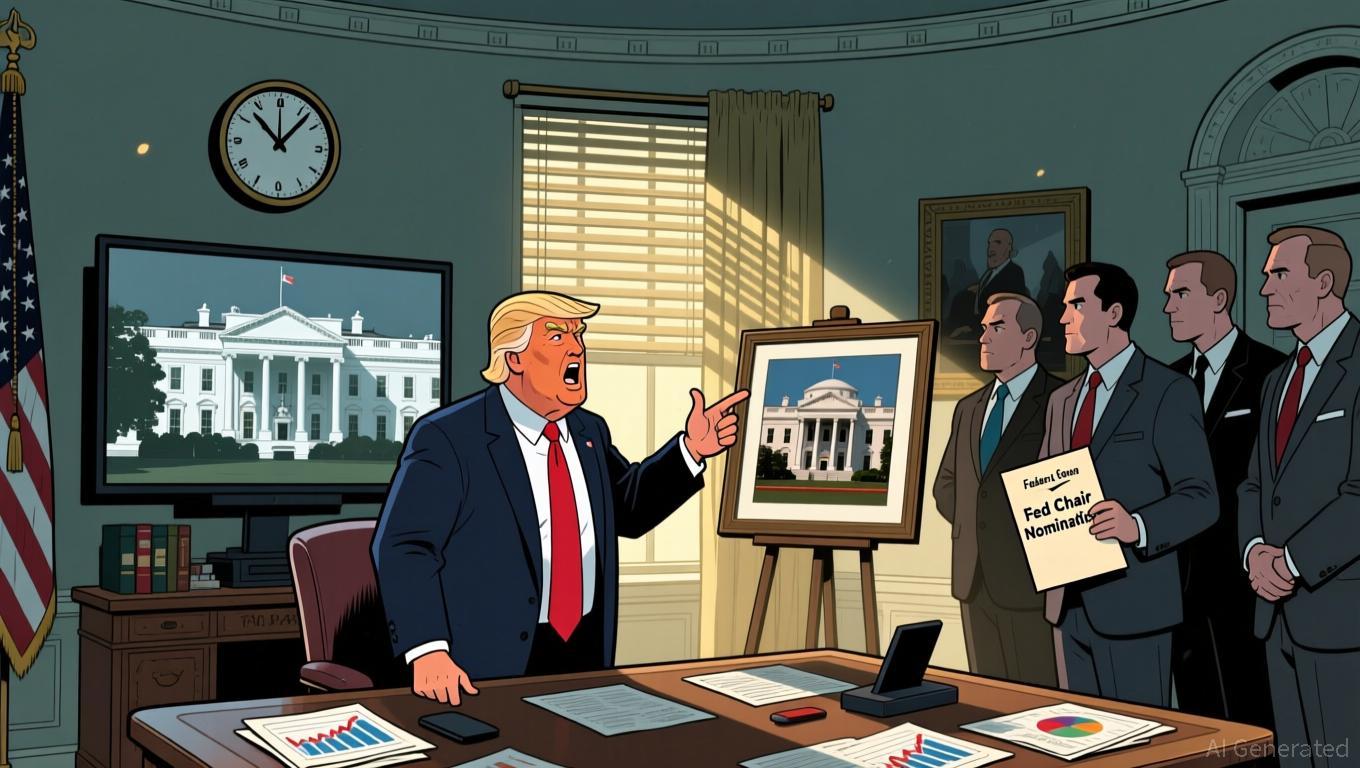TWT’s 2025 Tokenomics Revamp: Redefining Utility and Investor Rewards on Solana
- Trader Joe's (TWT) 2025 tokenomics prioritizes utility over speculation, offering gas discounts, DeFi collateral, and governance rights. - A deflationary model with 88.9B tokens burned creates scarcity, while loyalty rewards redistribute existing tokens to avoid dilution. - Community governance allows holders to vote on platform upgrades, aligning token value with ecosystem growth and user participation. - This Solana-based approach redefines DeFi incentives by linking price appreciation to real-world ut
Transitioning from Hype to Practicality: The Heart of TWT’s Redesign
The revised tokenomics of TWT emphasize genuine utility over mere speculation. Now, TWT operates as a versatile tool: it provides
This development reflects a wider movement in Web3, where tokens are increasingly crafted to enable real-world use rather than serve as mere investment vehicles.
Managing Supply and Building Deflationary Value
A cornerstone of TWT’s approach is its deflationary structure. Soon after its debut in 2020, 88.9 billion tokens were permanently eliminated from circulation, introducing scarcity and helping to protect against depreciation. This stands in stark contrast to inflationary DeFi models, where frequent token minting erodes the value held by existing participants.
The loyalty program further strengthens this framework. Participants earn rewards for staking and on-chain engagement, but no additional tokens are created for these incentives. Instead, rewards are distributed from the existing supply, forming a self-contained system that favors retention over dilution.
Decentralized Governance and Community-Led Progress
Another key aspect of TWT’s new tokenomics is its governance function. Token holders are empowered to vote on platform enhancements, fee policies, and new DeFi integrations. This decentralized governance not only spreads decision-making power but also keeps the token’s development in line with user interests.
This approach also tackles a frequent issue in early DeFi projects: the concentration of authority among a select few developers or investors. By distributing governance, TWT cultivates a community-oriented environment where all stakeholders are invested in the platform’s prosperity.
Balancing Investor Rewards in a Dynamic Market
For those investing in TWT, the 2025 framework offers a blend of passive and active benefits. The token’s capped supply and utility-based demand provide a foundation for value growth, while governance participation and loyalty incentives add further appeal. This multi-faceted reward system is especially attractive within the Solana ecosystem, which already draws developers and users with its high speed and low transaction costs.
Nevertheless, challenges persist. TWT’s success depends on the continued adoption of its utility features. Should user engagement decline, the token risks reverting to speculative trading patterns. Investors must also consider Solana’s overall market trajectory, as its performance will directly affect TWT’s prospects.

Conclusion: A Model for What’s Next?
TWT’s 2025 tokenomics revamp stands as a bold attempt to synchronize token functionality with investor interests. By focusing on real-world applications, limiting supply, and enabling community governance, this model addresses many pitfalls of earlier DeFi initiatives. For Solana, it may establish a new standard for token design—one that values sustainability over fleeting gains.
As the digital asset space evolves, projects like TWT could pave the way for the next wave of innovation, where value is rooted in practical ecosystem benefits rather than pure speculation.
Disclaimer: The content of this article solely reflects the author's opinion and does not represent the platform in any capacity. This article is not intended to serve as a reference for making investment decisions.
You may also like
XRP News Today: Surging XRP ETF Inflows Contradict Token’s Ongoing Downtrend
- XRP's first U.S. spot ETF (XRPC) set 2025 launch records with $245M inflows, outperforming Bitcoin and Solana ETFs despite XRP's 4.3% price drop post-launch. - On-chain data shows 58.5% of XRP supply in profit, while $44M in new long positions highlights institutional accumulation amid broader crypto selloff. - Technical analysis reveals a "V-shaped reversal" pattern as ETF-driven optimism clashes with XRP's bearish price action below $2.24 resistance. - Market remains divided: whales dumped $28M in deri

Target vs. Walmart: The AI-Powered Retail Showdown for Gen Z Shoppers
- Target CEO is investing in AI and physical expansion to attract Gen Z shoppers, aiming to reverse declining sales and compete with Walmart . - The strategy includes AI-driven fashion trends, synthetic consumer models, and partnerships with OpenAI to enhance personalization and inventory optimization. - Walmart counters with AI-powered ChatGPT shopping and a potential R&A Data acquisition to strengthen its third-party marketplace oversight. - Both retailers leverage generative AI to redefine shopping expe

Trump Faces a Fed Chair Conundrum: Swift Rate Reductions or Maintaining Trust?
- Trump pledges to replace Fed Chair Powell by Christmas, but prediction markets assign 44% chance of delay into 2026. - Shortlisted candidates (Bessent, Hassett, Waller, Bowman, Rieder) all favor faster rate cuts, contrasting Powell's cautious approach. - Market skepticism grows as Trump privately complains about selection delays, despite public confidence in removing Powell. - Next Fed chair must balance Trump's demand for aggressive rate cuts with maintaining central bank credibility and market trust.

Brazil's Plan to Tax Cryptocurrency Ignites Debate Over Regulation and Investor Protections
- Brazil plans to tax cross-border crypto transfers via IOF expansion, targeting $30B annual revenue loss from unregulated stablecoin flows by 2025. - Stablecoins like USDT , dominating 2/3 of Brazil's crypto volume, face stricter forex rules amid concerns over money laundering and informal currency exchange. - Lawmakers clash over crypto policies: one bill seeks tax exemptions for long-term investors, while another proposes court powers to confiscate crypto linked to cybercrime. - The government's dual st
